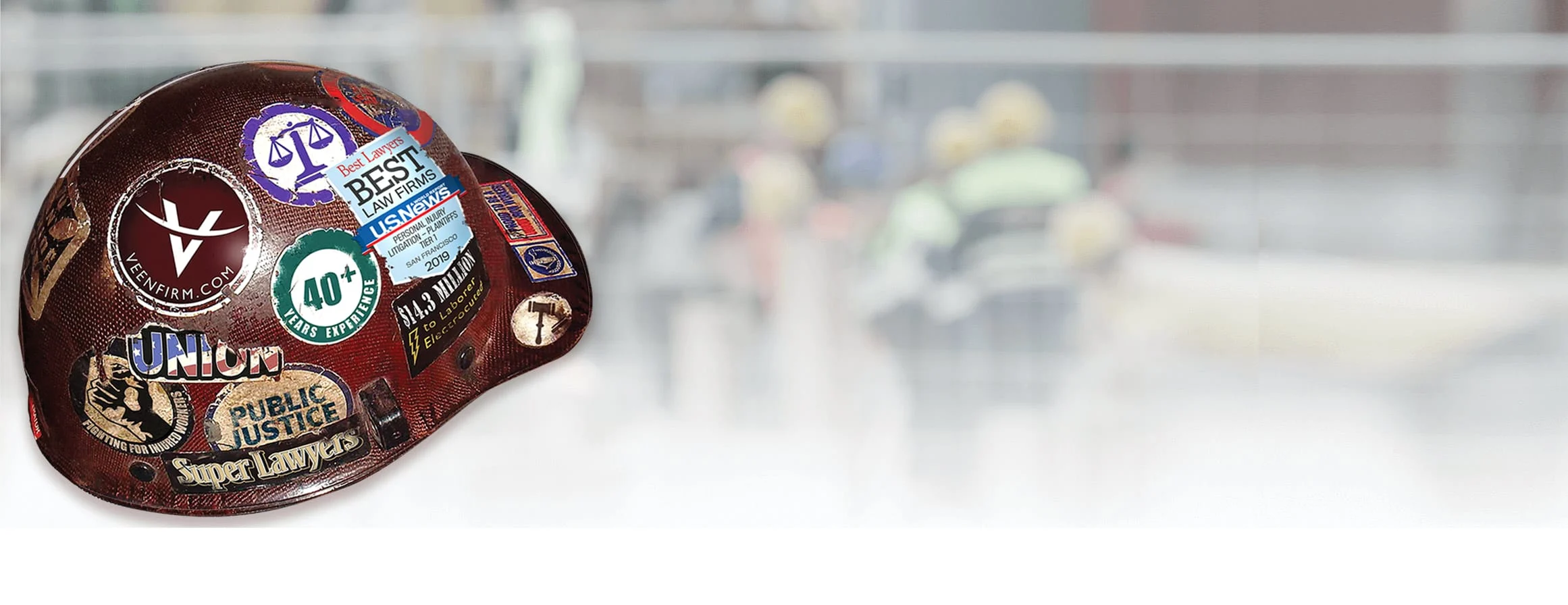Dec 17, 2013
The Veen Firm has partnered with the San Francisco Building and Construction Trades Council to provide legal insight to Bay Area workers in the trades. Many complicated legal issues affect the people who work the hardest in our community. The Veen Firm is passionate about providing the education and resources needed to protect Bay Area workers. Real people submit their questions, and the attorneys at The Veen Firm respond directly to the community and the people who help build this beautiful city. This month’s expertise is provided by Kevin Lancaster.
My husband is a steelworker and recently had a bad fall at work. He is on short-term disability, but I am not sure when he will be able to return to work. What should we do to protect ourselves if he’s out of commission for a long time?
-Susan from Oakland I can’t tell from your question if your husband’s short-term disability payments are from California State Disability, Workers’ Compensation temporary disability, or a private insurance company policy. However, because he was hurt at work, he is eligible for the limited amount in duration of WCAB temporary disability payments and the medical treatment WCAB provides. There is a one-year time limit to file for those benefits or he loses them. If he hasn’t already done so, he should immediately consult with a qualified WCAB attorney to file a claim. You’re looking for an “applicant’s attorney” online, in the Yellow Pages, or someone who is a member of the California Applicants Attorney Association, a specialized group of applicant attorneys. Of great concern is that he suffered a bad fall and may be unable to return to work. The WCAB benefits, including a permanent disability award, may not replace the compensation to your family which you expected to receive from your husband’s work as a steelworker. Therefore, you should quickly retain an experienced third-party attorney to explore if someone other than your husband’s employer is legally responsible for his fall. Also, there may be an OSHA appeal in process concerning citations issued relating to his fall. The OSHA file, accident investigation and witness interviews may disclose the cause of his fall. For instance, if it was a fall from heights, it could be as a result of someone’s failure to install catenary lines or a product failure of his fall arrest gear. Or maybe, he was working off of scaffolding which failed. A trip and fall can result from poor lighting or some other trade’s debris around the worksite from inadequate “housekeeping.” There is also the possibility he fell through an unguarded floor penetration used by one of the mechanical subcontractors. These facts will clarify if another subcontractor or the general contractor may be legally responsible and a likely civil defendant. Civil cases are subject to strict time limitations and your claim may be barred if it is not timely filed. The evidentiary trail gets cold quickly, so time is of the essence. –Kevin Lancaster, Trial Team Leader; The Veen Firm, San Francisco, CA (Reposted from the San Francisco Building & Construction Trades Council.)

















